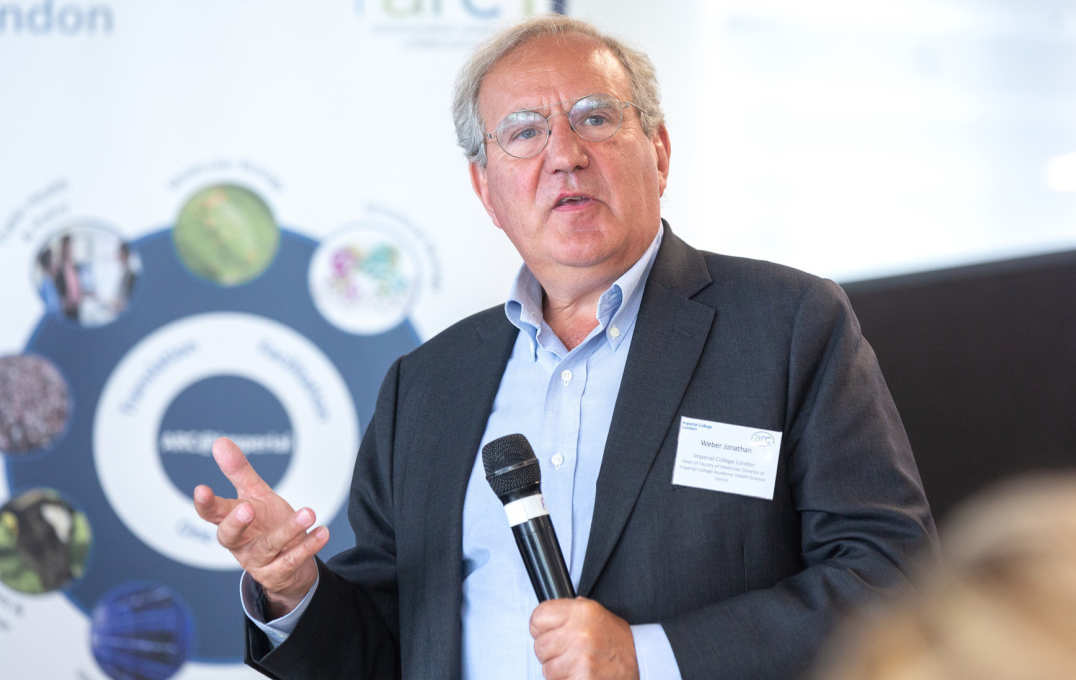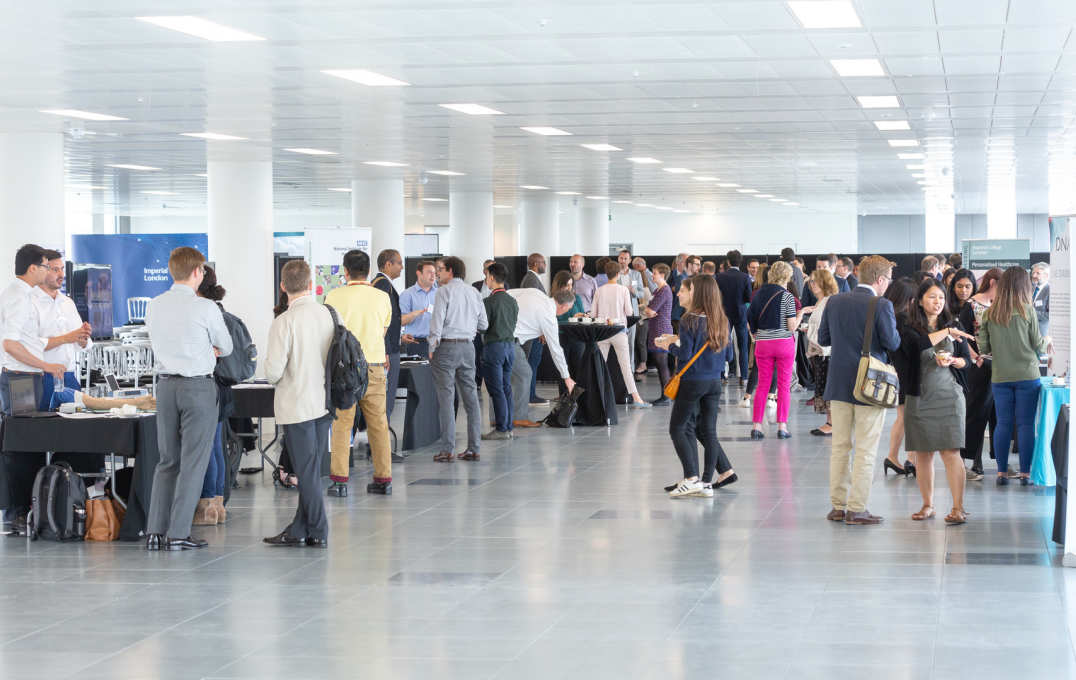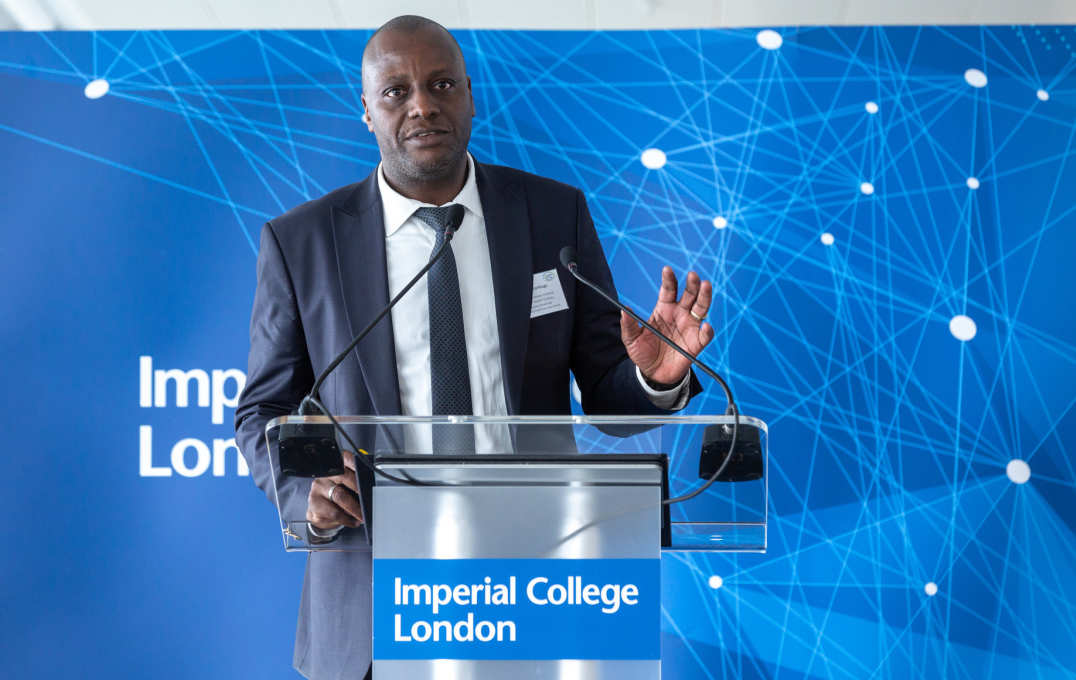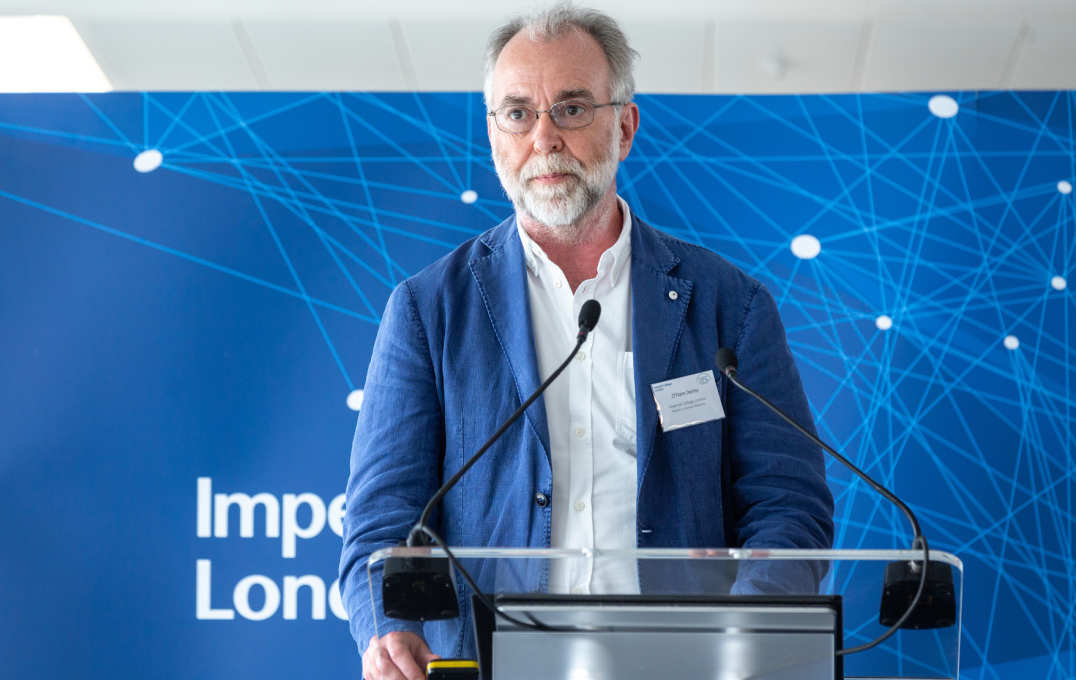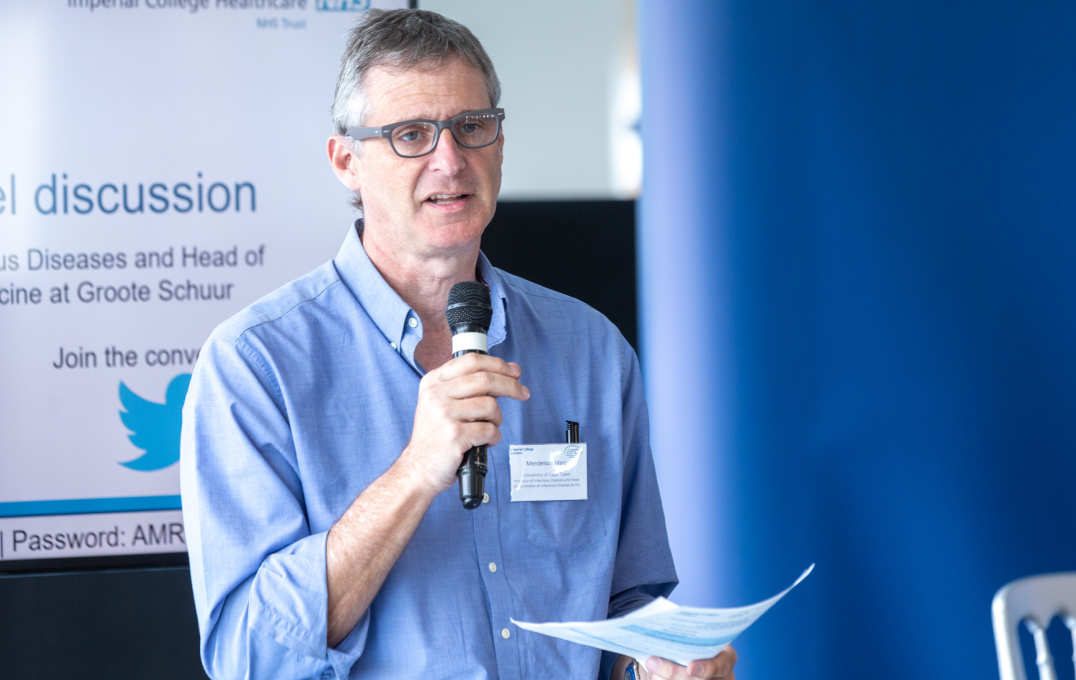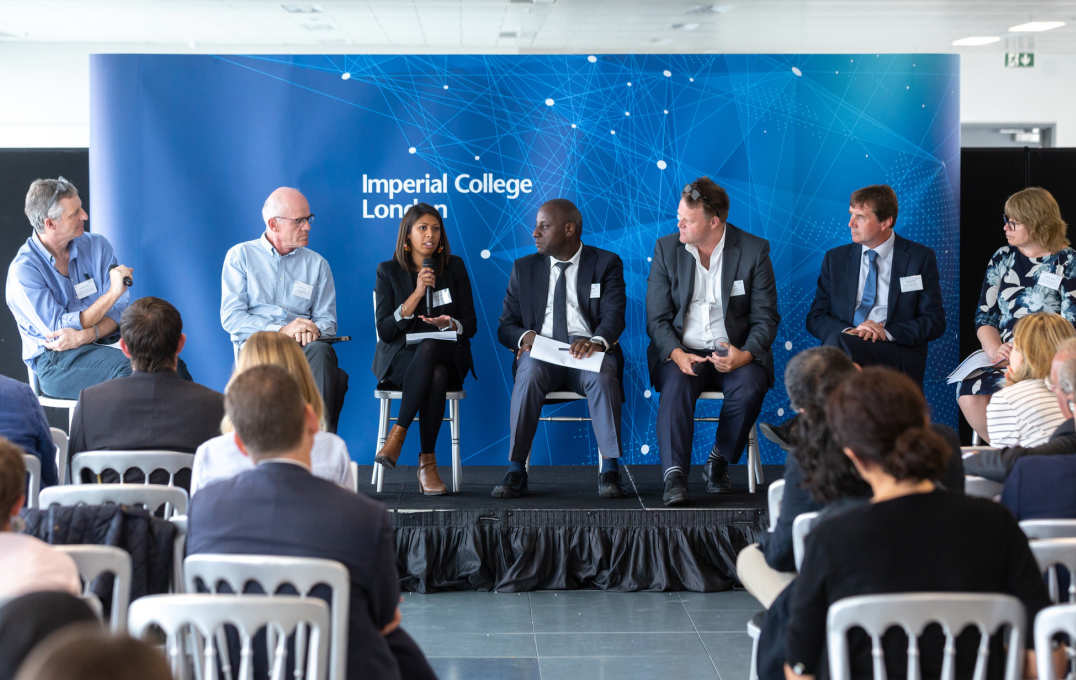Emerging tech solutions to global AMR threat take centre stage at White City
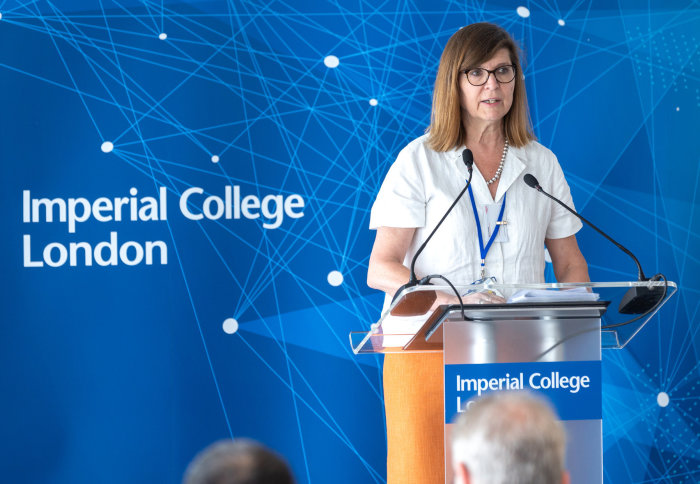
Professor Alison Holmes
Summit explores the role of emerging tech developments in optimising the use of antimicrobials, combatting AMR and supporting infection management.
Over 140 attendees from academia, industry and government gathered at Imperial’s Translation & Innovation Hub earlier this month for the ‘Technical Solutions to Support Infection Management and Address AMR’ summit.
The event also included the launch of the new Centre for Antimicrobial Optimisation (CAMO), funded as part of a £32m drive by the Department of Health and Social Care (DHSC) to foster new and innovative approaches to tackling antimicrobial resistance. CAMO will bring together multidisciplinary experts from across the College and NHS partnerships to develop pioneering research into antimicrobial optimisation and precision prescribing to improve infection management.
AMR is a growing global health challenge which threatens the effective prevention and treatment of a range of infections. It occurs when microorganisms, such as bacteria, adapt and change in response to antimicrobial drugs, thereby becoming resistant. There is, therefore, an urgent need to not only develop new antimicrobials but also focus on optimising prescribing strategies and diagnostics in order to tackle the global spread of drug-resistant infections.
Breaking new ground in AMR research
In welcoming attendees to the event, CAMO Director Professor Alison Holmes outlined the key strategic aims of the newly awarded Centre, which she said would contribute to “reshaping the focus of AMR research” and bring together a range of disciplines at Imperial’s White City Campus.
Following the summit, Professor Holmes added: “‘This award emphasises the importance of a research focus on how we use and prescribe antimicrobial agents, locally nationally and globally. It also reinforces the critical need for the integrated multidisciplinary approach that we have successfully achieved here at Imperial.”
Following this, Baroness Blackwood, Parliamentary Under Secretary of State at the Department of Health and Social Care, opened the summit by underlining the government’s steadfast commitment to combatting the “great and wicked problem” of AMR.
Speaking after the event, Baroness Blackwood commented: "Drug-resistant infections are one of the greatest threats to modern medicine and the UK is world-leading in the fight against AMR."
"I was delighted to meet so many experts who help contribute to our work on a global scale at the new Government-funded Centre for Antimicrobial Optimisation at Imperial College. As part of the Government’s commitment to containing and controlling AMR by 2040, this centre will help us develop new innovative approaches to tackling antimicrobial resistance."
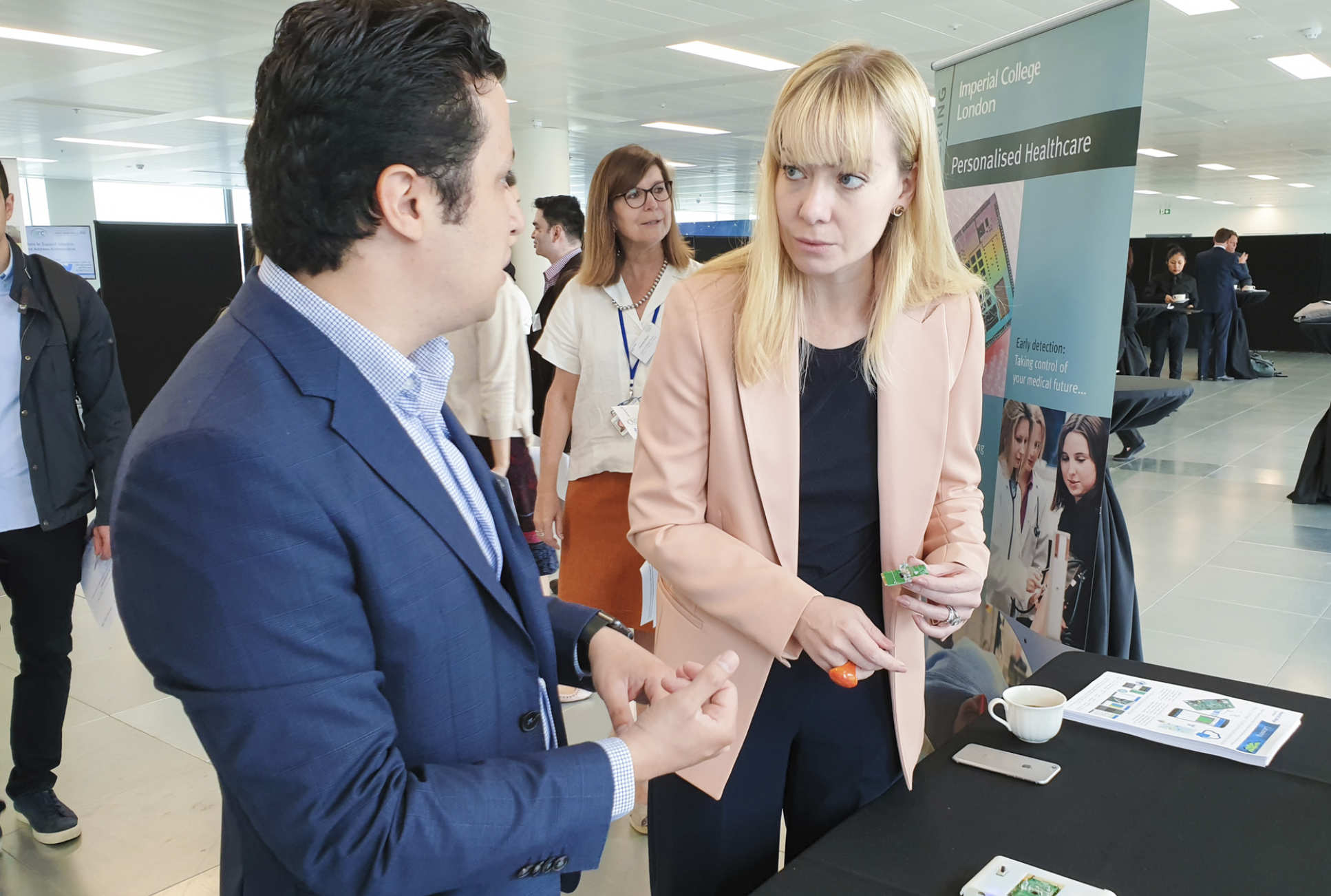
Exploring emerging solutions
The first research session of the day focussed on data science applications to optimise antimicrobial use and was chaired by Dr Rupa Sarkar, Editor-in-Chief of the Lancet Digital Health. Speakers from across the College and its NHS partners shared insights into how data science solutions could promote a more personalised and targeted approach to managing and treating infection in a clinical setting.
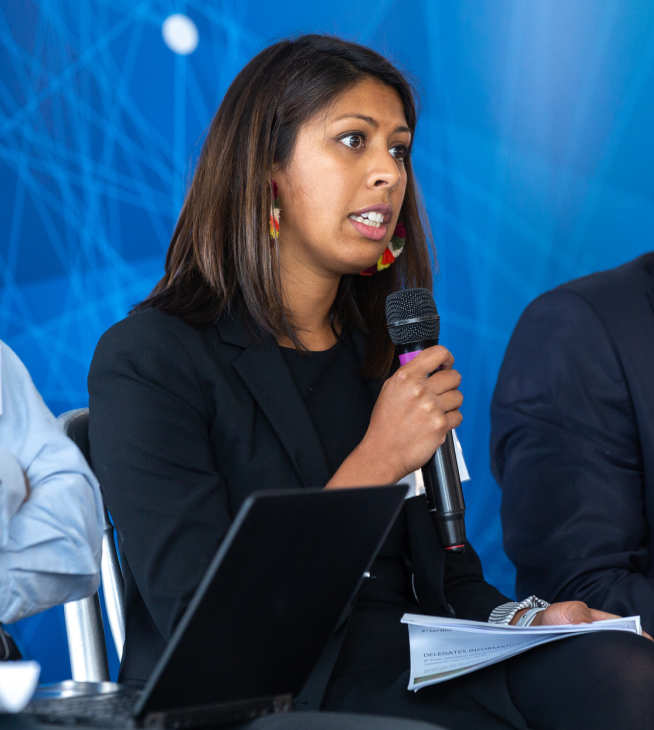
In the final presentation of the session, Dr Raheelah Ahmad underlined the necessity of considering public and patient involvement in co-developing artificial intelligence (AI) based health systems. Dr Ahmad highlighted common themes in recent feedback gathered from these groups, which included concerns surrounding the way in which AI diagnostic tools could be implemented and their impact on the existing health infrastructure.
During the summit’s second session chaired by Professor Chris Dowson (University of Warwick), speakers showcased work on the latest advances in diagnostic technologies and connectivity. This included an overview of Lacewing, the newest iteration of rapid diagnostic microchip technology developed by Dr Pantelis Georgiou and his multidisciplinary team. In his talk, Dr Georgiou explained how the innovative chip device could be used to determine the type of infection present in a patient’s blood and the results shared immediately to enable real-time epidemiological monitoring.
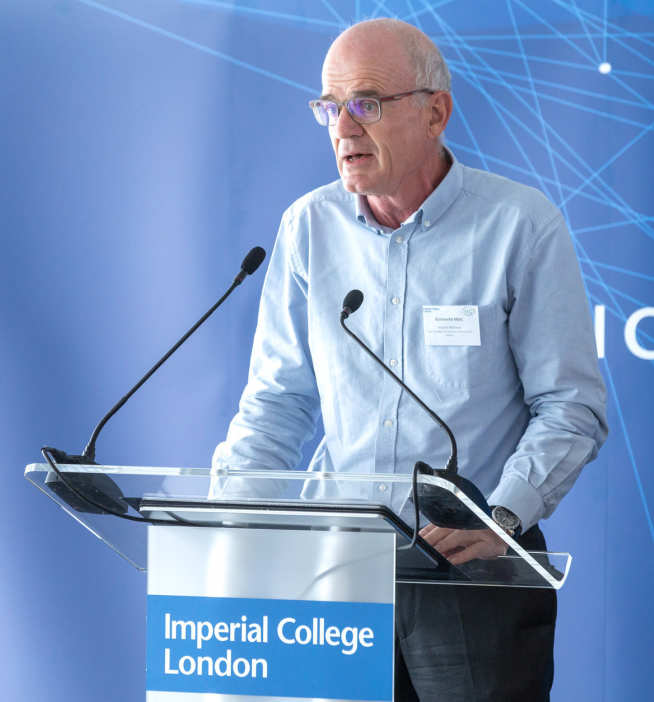
Following this, Dr Marc Bonneville (Institute Mérieux) chaired a discussion on novel technologies for precision prescribing. The session included a talk from Dr Andrew Kambugu (Makerere University), who touched on the challenges of optimising dosing in HIV and tuberculosis co-infection in Uganda, including navigating how to apply and adapt clinical trial findings in an individual patient context. In concluding his talk, Dr Kambugu suggested that bridging studies would be essential to supporting clinicians in resource-limited settings more broadly, and would also provide vital training opportunities and guidance for local healthcare professionals.
Closing the event, an expert panel chaired by Professor Marc Mendelson (University of Cape Town) participated in an interactive and in-depth discussion, inviting questions from the audience on the key themes of the day. Much of the conversation focussed on the need for greater investment in interdisciplinary, translational research, and improved funding and opportunities for early-career researchers wishing to break new ground in this area. The panel also discussed the current barriers to implementing new technologies and potential issues surrounding their applicability in lower- and middle-income settings.
Learn more about the Antimicrobial Research Collaborative @ Imperial and the NIHR Health Protection Research Unit in Healthcare-Associated Infections and Antimicrobial Resistance
Article supporters
Article text (excluding photos or graphics) © Imperial College London.
Photos and graphics subject to third party copyright used with permission or © Imperial College London.
Reporter
Ms Genevieve Timmins
Academic Services

